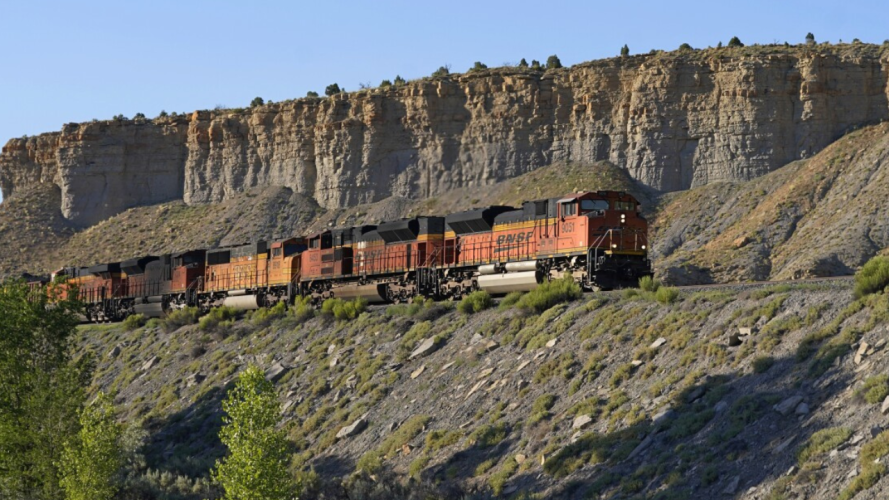SALT LAKE CITY — The U.S. Supreme Court has issued a ruling in a lawsuit over the Uinta Basin Railway, limiting the reach of the National Environmental Policy Act.
In a unanimous ruling, the justices reversed a lower court's decision that effectively blocked the railway project in eastern Utah. The Court declared that "NEPA requires agencies to focus on the environmental effects of the project at issue" and not necessarily the environmental "effects of upstream oil drilling or downstream oil refining."
"Simply stated, NEPA is a procedural cross-check, not a substantive roadblock. The goal of the law is to inform agency decision making, not to paralyze it," wrote Justice Brett Kavanaugh in the opinion.
The ruling is a win for the Seven County Infrastructure Coalition and the state of Utah, which have pushed the project for years.
"This is a big deal for rural Utah. Especially for the eastern area of Utah, the Uintah Basin, they have not had transportation options. As most people are aware, it’s a two lane road over a very high mountain pass any which way you go," Keith Heaton, the head of the coalition, told FOX 13 News on Thursday.
The Uinta Basin Railway would be an 88-mile rail line that would help get oil from eastern Utah to other parts of the country for refining.
"Without transportation, it’s really hard to have a diversified economy and so this will really benefit the citizens of the Uintah basin and the entire state of Utah. This decision is a really great day for building America," said Heaton.
Eagle County, Colo., and environmental groups had opposed the Uinta Basin Railway project. They noted the ruling will have broader implications for infrastructure projects and their impact on the environment.
“This disastrous decision to undermine our nation’s bedrock environmental law means our air and water will be more polluted, the climate and extinction crises will intensify, and people will be less healthy," said Wendy Park, senior attorney at the Center for Biological Diversity. "It guarantees that bureaucrats can put their heads in the sand and ignore the harm federal projects will cause to ecosystems, wildlife and the climate. What it doesn’t guarantee is the ill-conceived Uinta Basin Railway’s construction.
"The last thing we need is another climate bomb on wheels that the communities along its proposed route say they don't want. We’ve been fighting this project for years, and we’ll keep fighting to make sure this railway is never built."
Politically, the project has been favored by state Republican leaders and the Ute Tribe, especially as the state has leaned heavily into developing new sources of energy.
"I think it’s telling this was a unanimous decision. This was not close," Gov. Cox told reporters on Thursday. "We’re finally putting a stop to these extremist groups that have been using a law that was meant to make our environment cleaner and to help humans progress. They’ve done the exact opposite."
Senate President J. Stuart Adams, R-Layton, called it a "significant victory for Utah and American energy independence."
"The Uinta Basin Railway will power our economy by connecting rural Utah to national markets, supporting job creation and energy production. Utah already leads the nation with low energy prices, and this project helps secure our state’s position as a global energy leader, delivering reliable, safe and affordable power for generations to come," he said in a statement.
Read the U.S. Supreme Court ruling here:




